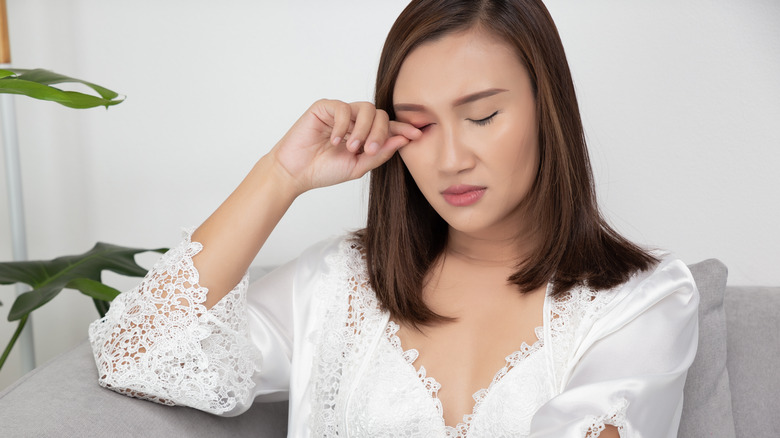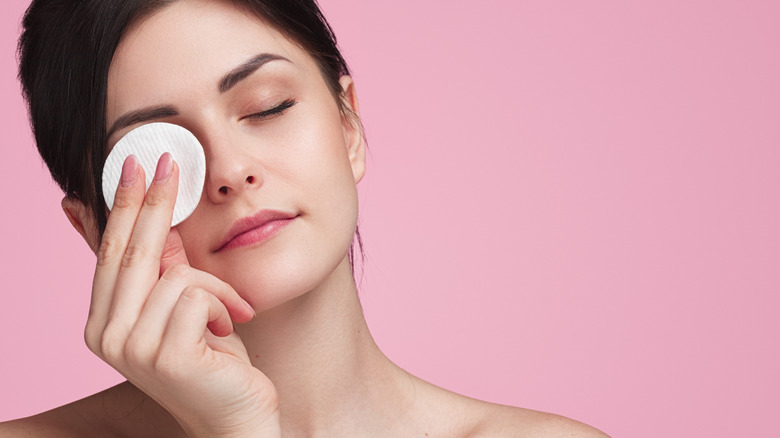The Truth About Eyelid Scrubs
If you want to clean your eyes, giving yourself some relief from irritation in the process, you might consider using an eyelid scrub. Your eyes are pretty sensitive, so it can be difficult to know just what to use on them — are eyelid scrubs actually okay to use? According to dermatologist Dendy Engelman, who spoke to Byrdie, eyelid scrubs aren't actually scrubs as such. Rather, they're "non-abrasive formulas designed to wash away dead skin, bacteria, and other debris at the lash line." Despite what you may think from the name, they don't contain any grit.
As eyelid scrubs both sanitize the eyelids and help to soothe irritation and itching too, they're perhaps best to use when your eyelids are actually inflamed. They can also be useful if you're dealing with eyelash mites or blepharitis — the non-contagious condition that can cause an inflamed eyelid with dandruff-esque flakes. However, the use of eyelid scrubs is not entirely without risk; here's the truth about the skincare product.
Eyelid scrubs are safe, but you should take precautions
When it comes to the eye area, it's best to be careful. A gentle eyelid scrub can be just what you need for cleaning the area around your eye, but if you've got sensitive skin you might want to look for a product that's full of ingredients to soothe your skin. Some of them can even exacerbate irritation and be responsible for over-drying around the eyes, so it's perhaps worth erring on the side of caution (via Byrdie).
It's also important to remember never to scrub your eyelids themselves — regardless of how good rubbing your eyes might feel. No matter how tempting it might be, your eyelid is so thin that you could end up doing some real damage. When you're finished, simply rinse your eyelids with clean water and gently dry them with a towel (via WebMD). Sometimes, people use essential oils like tea tree oil as eyelid scrubs. If you do so, make sure you never use them at full strength. Either look out for a 50% solution or dilute it yourself with a carrier oil for extra safety (via Healthline).

